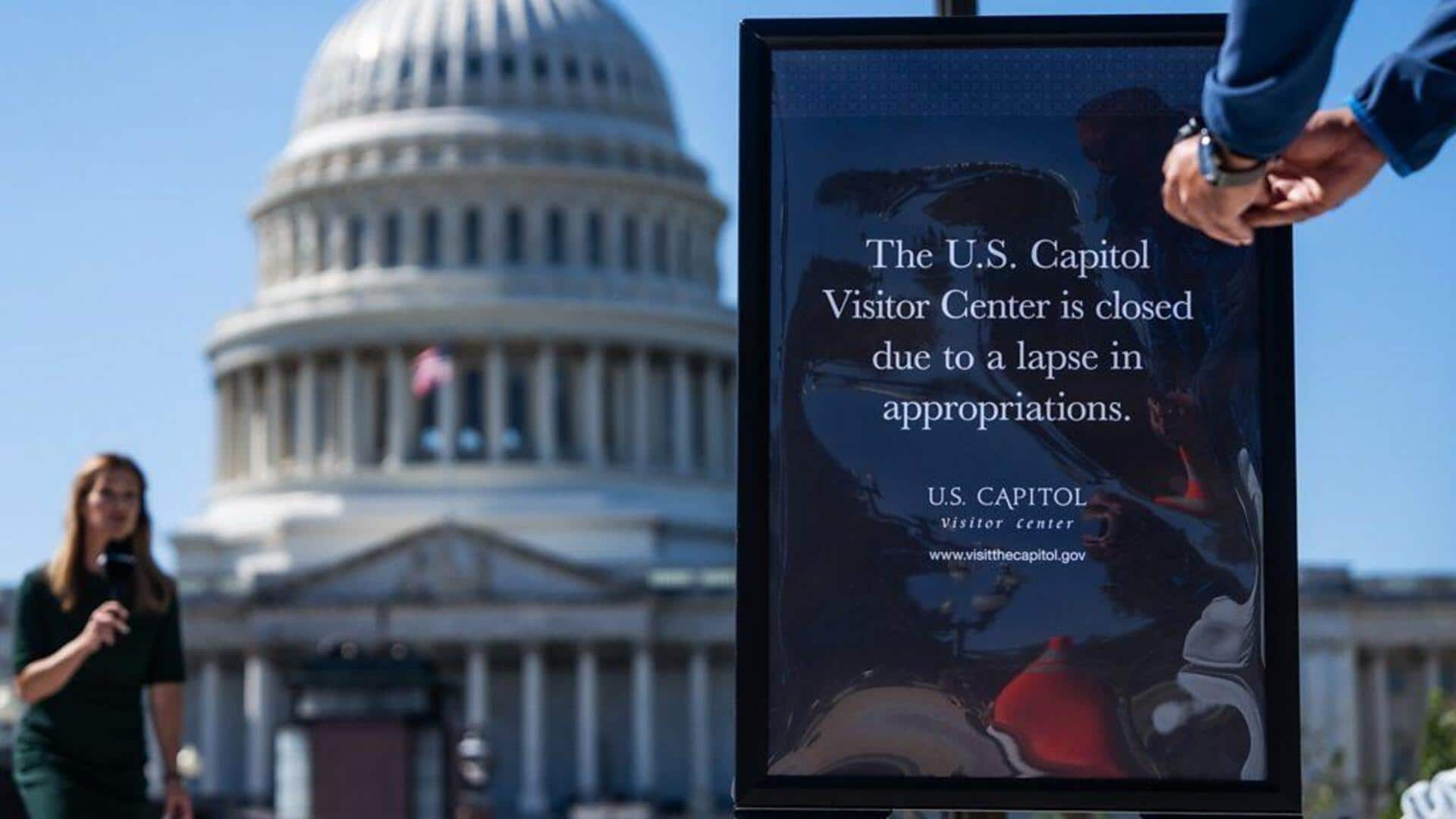
US government shutdown could last weeks amid deep political divide
What's the story
The ongoing US government shutdown could extend for weeks, analysts have warned. The deadlock between Democrats and President Donald Trump is fueled by deep political divisions, making compromise seem unlikely. Andrew Koneschusky, a former press secretary for Senator Chuck Schumer, said both sides are "dug in" with little room for negotiation.
Core issue
Trump blames Democrats for job losses
The main sticking point in the shutdown is a Democratic demand to extend health care subsidies that are set to expire. This could lead to a significant increase in costs for millions of low-income Americans. On Sunday, Trump blamed minority Democrats for blocking his funding resolution, which requires their votes. He said they are "causing it" and that his administration has threatened to permanently fire federal workers due to job losses caused by this standoff.
Future prospects
Temporary agreement likely by end of October
Some analysts believe a temporary agreement could be reached by the end of October. Jeff Le, a former senior California state official who worked with the first Trump administration, said both parties may come to an understanding. However, he warned that if this standoff continues beyond two months, it could have serious consequences on government operations and national security issues.
Impact of public opinion
Public sentiment may play a crucial role
The future of this standoff could depend on how public sentiment shifts, analysts have said. So far, polling data has been mixed, with Republicans facing more criticism than Democrats. Trump presided over the longest shutdown in history in 2018-19 when federal agencies stopped work for five weeks. This time around, he is using pressure tactics by threatening liberal policy priorities and mass layoffs of public sector workers.
Financial impact
Economic impact may force a compromise
The 2018-19 shutdown cost the economy $11 billion in the short term, according to the nonpartisan Congressional Budget Office. US Treasury Secretary Scott Bessent has warned that this latest shutdown could also affect GDP growth. Michael Ashley Schulman, a California-based financial analyst, believes economic realities may force a compromise if Wall Street gets spooked and Treasury yields spike.